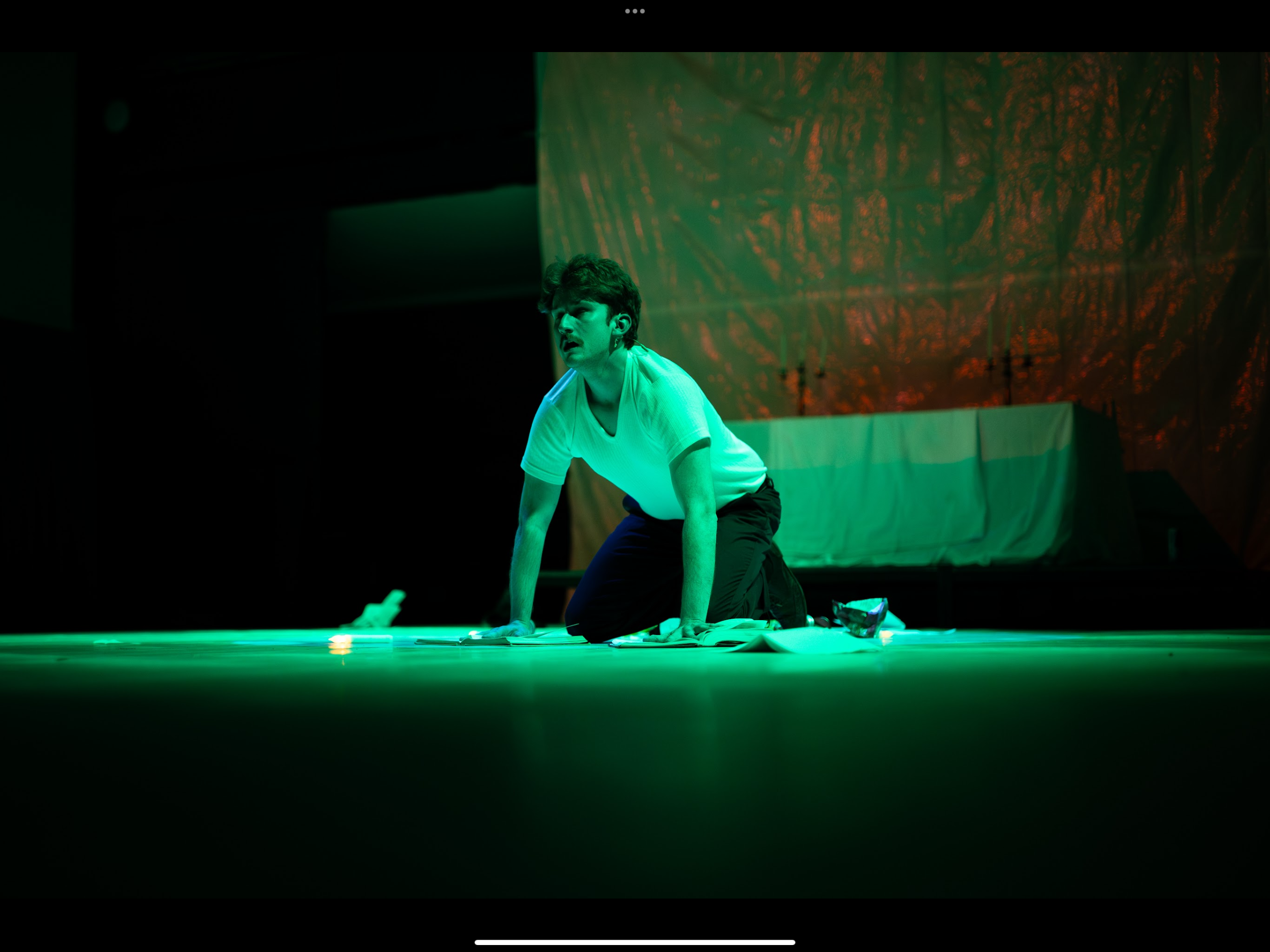
What We’re Into: Staff Picks
Having enjoyed her free renderings of Sappho, I picked up Anne Carson’s Antigonick (Sophokles), which is ostensibly a translation of the classical tragedy. True to form, Carson has taken a loose approach to her source material: I hadn’t got a page into the book before Antigone started an argument with her sister about Hegel and Beckett. Things got stranger. Bianca Stone’s illustrations – an empty hillscape, a horse knocking over a dinner table – do not relate to the plot in any literal way, instead drawing out the darkness and chaos that lie beneath its surface. With its bright pictures on translucent paper and weird half-modernised language in handwritten all-caps, the book is a battering ram of defamiliarisation, and it eventually brought me to an overdue realisation (if not an anagnorisis). I looked at the whimpering anguish of the bewildered characters, the confusion of narrative, the twisting speeches and near-incomprehensible actions: where had I seen all this before? Carson shows us that, put under a certain light, Sophocles isn’t very far from some of the most radical post-naturalist playwrights of the last century, from Beckett to Philip Ridley. Antigone emerges, in Carson’s hands, as a modernist play.-Alexander Hartley.
“Truth, of course, must of necessity be stranger than fiction”. The introduction to The Moth: This is a True Story, written by Neil Gaiman, reminds us of G.K. Chesterton’s quote with the confidence that what follows will prove his statement true. The Moth started as a series of events in the US that hoped to recapture the art of story-telling, encouraging people to engage an audience for a few minutes or less with something amazing, something unique and, most importantly, something true. On reading the book, which compiles fifty of these stories, it’s easy to see how Chesterton has a point, and how there are some things that by the nature of their ‘realness’ make them stranger than even the wildest of fantasies. In my last train journey, I dipped into the thoughts of the tropical disease specialist who was flown out in a concord to treat Mother Teresa, the physicist who used human relationships to explain her theory for why the universe maybe wasn’t actually as infinite as we think, the woman scouted from a bar in the states to be concubine for the Sultan of Brunei, or the American gentleman who was cured of depression through an ancient African traditional ritual and ram sacrifice. I’d think I was being gullible too, but what the stories make you realise increasingly is how the bizarre, or indeed the miraculous, often begin rather closer to home than one might think.-Ione Wells.
Marilynne Robinson’s 1980 debut, Housekeeping, is a haunting account of childhood in a family that is barely holding together. Lucille and Ruthie have learnt early that domestic stability ebbs and flows. A railway car carrying their grandfather vanished into the deep black lake next to their hometown in an accident that nobody saw and kickstarted a series of quiet disappearances that litter the story with half-formed ghosts. This poetic and lilting novel carefully explores how people choose to interact with life’s uncertainty- either by folding and dusting and ironing themselves into a sense of security, or by letting themselves drift. -Thea Slotover.
Recently I was prompted by a friend to revisit a talk known as This is Water given by the novelist David Foster Wallace, a commencement speech at Kenyon College. From Wallace’s first self-deprecating comment about his own sweating it is clear how self-conscious yet candid he is. So anxious not to moralise, dictate, or spout clichés that he feels it necessary to unpick his own speech. And yet by its end, it leaves you are unable to unthink that phrase: ‘This is water’.-Ieuan Perkins
The exponential growth of the Rhodes Must Fall movement in Oxford over the past term reminded me of this essay by a Singaporean student who attended Cambridge, on learning to devalue the culture of her native country because it did not fit into western standards of beauty. In lyrical prose that evokes the rich tapestry of western culture only to immediately undermine its claims to universality, the student, Michelle K, mercilessly describes the process of disowning her own heritage. It is only by rediscovering it, she suggests, that she could begin to challenge this cultural colonialism: not by raising Singaporean art to the status of Chaucer or Chekhov, but by refusing to submit to a western conception of aesthetics in the first place. “Coloniality continues … whenever bright young men and women from all over the world decide to cap off their educations by going on pilgrimage to pinnacles of Western civilization; when they dedicate themselves to the Western canon and walk in the shadows of gothic cathedrals and imperial facades, and learn that this is the good life.”-Thea Bradbury
An architectural exposition that takes place every five years, this year’s Expo Milano introduced itself in the fashion capital of Europe with the title Feeding the Planet. Using the current theme of sustainability and gastronomy, the Expo comprises of pavilions designed by the represented countries, showcasing their respective culinary delights or technological innovations. The structures range from the stereotypical to the thought-provoking. The British pavilion is designed to resemble a garden within a beehive as Britain, (as I learned in the Expo) is a fundamental contributor to sustaining the bee population. Expecting to harvest over 20 million visitors during its run until October, the display is every Geographer and Architect’s dream; it was as though I had wandered into an amusement park of case studies, dotted with the occasional foodie delight, picking (sustainably of course!) at anything from Belgian waffles to Vietnamese dumplings. –Costanza Bertoni
You may not know yet, but the year is 2004 again, and podcasts are back. Helen Zaltzman’s The Allusionist is a strangely addictive fortnightly podcast in which Helen and a guest discuss an aspect of etymology – word origins and linguistic change. It’s better than it sounds. Did you know that a Finnish radio station broadcasts the news weekly in Latin? Or that dictionaries put fake entries – termed ‘Mountweazles’ – in as copyright traps? Perhaps you’ve wondered why Magpie Lane in Oxford used to be called Gropecunt Lane?
On the subject of 2004 making a come-back, check out the self-titled debut album by FFS, a supergroup formed by Franz Ferdinand and Sparks. There’s not enough here to match Franz Ferdinand’s eternally excellent first album, but the ironic, laconic vocals of Alex Kapranos combine superbly with Russell Mael’s peculiar intensity. ‘Johnny Delusional’, ‘Police Encounters’ and the self-deprecatory ‘Collaborations Don’t Work’ make it well worth a listen. -Dom Hewett







